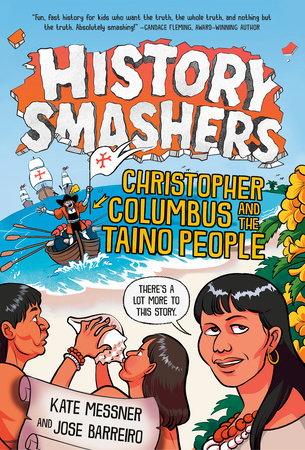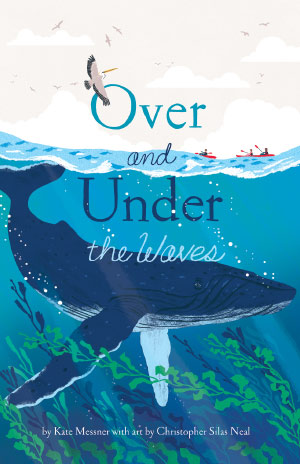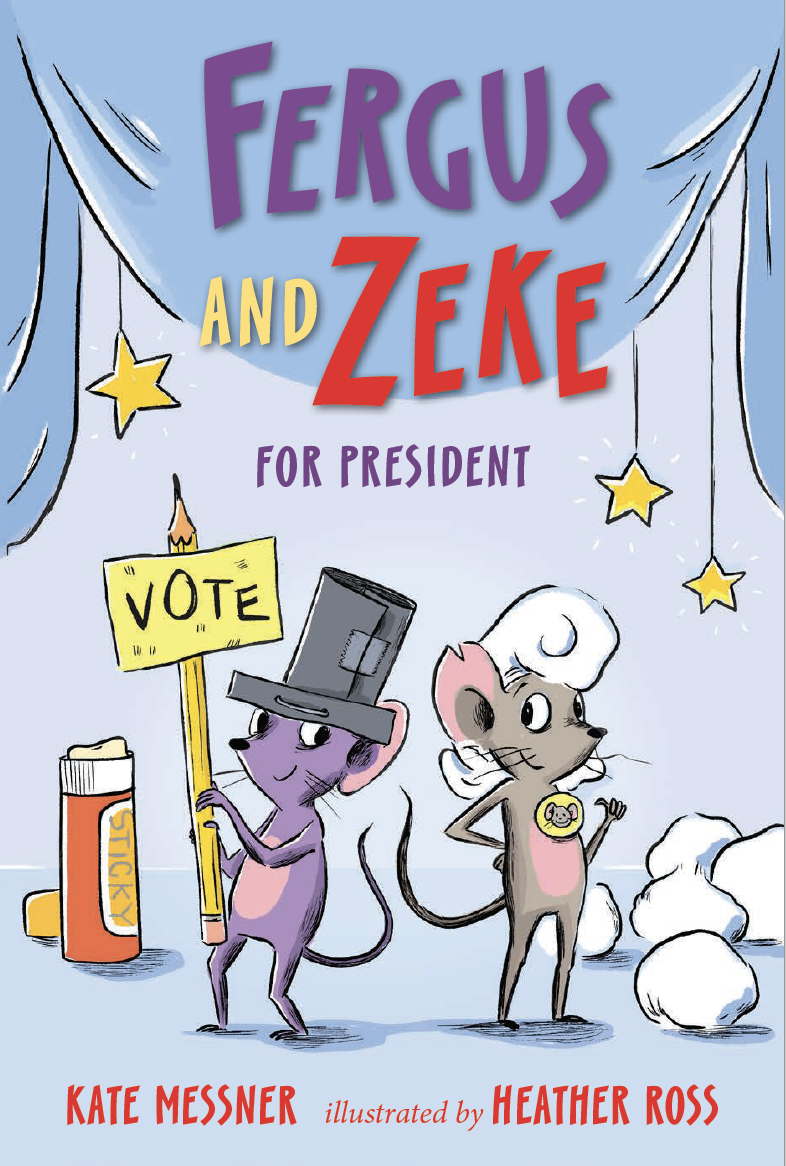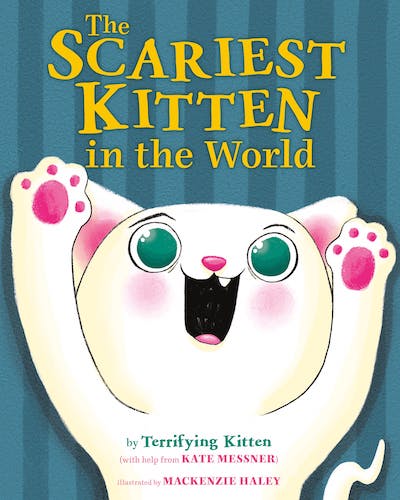I’m super-excited about today’s guest author, not only because I love her books but also because she’s tackling a topic that’s going to be perfect to share with your students – writing memoir and personal narrative. Olugbemisola Rhuday-Perkovich is the author of EIGHTH GRADE SUPER ZERO and the forthcoming TWO NAOMIS with Audrey Vernick. She lives in Brooklyn, and today, she’s here with us to talk about writing from personal experience…


Where are you from?
I get that a lot.
Mostly, because of my name.
Olugbemisola Rhuday-Perkovich.
My father is Nigerian – that’s where my first name, Olugbemisola comes from. It’s a Yoruba name, and it means “God has brought me a gift, or God has brought me honour. My mom was Jamaican, and the “Rhuday” part of my pen name comes from her. That was her middle name, and it’s also my daughter’s middle name. The Perkovich part, my husband is of Croatian descent. I was born in the Bronx, NY. I live in Brooklyn. We traveled a lot. So there you go. I can tell you about my name, where I’ve lived, where I live now. That’s where I’m from.
Sort of.
I tell students not to be afraid of the word “memoir.” It sounds a little grand, yeah? A bit presumptuous? Sometimes it can lay a weight on your writing before you start. Famous people write memoirs. Politicians. Entertainers. Athletes.
Yeah, yeah. And so do you and I.
It’s likely that we’ve all had to write personal narratives at some point, perhaps under a different name. Writing a personal narrative, loosely defined as “telling the story of something that happened to you” can actually be a great first draft of a memoir.
To move into memoir, we can infuse our personal narratives with three things:
Memory + Meaning
“Retrospection and reflection are crucial elements of the memoir genre,” writes Katherine Bomer in her wonderful Writing A Life.
When I think about writing memoir, that question, that “Where are you from?” gets at the beginning of moving a piece from personal narrative to memoir. As a writer, I take all of where I’m from — the people, the places, the things that I love, the things that I hate, the things that I don’t understand…I discover and examine what Donald Murray and Nancie Atwell encourage me to think of as my “writing territories”, the ones that I return to again and again, and then I just tell stories.
So, we moved a lot. Most of the time when we moved to another country, my mother had to put her career on pause. My sister and I were ecstatic because it meant that she was home, and she baked a lot. Let’s say I write an essay or personal narrative about the birthday celebration the year we were in Kenya when she was mixing the cake and a giant praying mantis appeared on the wall and we all screamed and ran around and spilled the batter and it was wacky and funny, etc. It was a fun, funny day. And there was cake.
Or I could use that as a springboard for a memoir about the different ways that I saw my mother during each of those moves, how her different ‘forms’ of motherhood at different times (WOHM, WAHM, entrepreneur, etc.) inform my own motherhood. How, reflecting back on our relationship over time, I see how those moves affected it. How that day with the cake batter made me see that my mom was sometimes as frustrated and frightened and feeling out of place as I was as a child going from school to school, community to community, no matter how much I tried to just smile and act nice, and think of it all as wacky and funny.
Writing memoir is about taking the small things and asking big questions. Thinking about the people, places, and ideas that mean a lot to you. About writing where you’re from. I think all writing works when you go back to what gives you strong feelings, what you’re passionate about…and ask: What’s the Big Idea? We write memoir to make meaning, to understand, to record.
Look at your personal narrative. Does it remind you of another story you could write about? Are there clues that reflect a recurring pattern in your life? With a personal narrative, we are primarily writing about what happened and how it made us feel. With memoir, we add another layer: what does this mean?
Do a fifteen-minute freewrite on your best day last year. What you did, how it felt, etc. And then read it over and think. Why was this what came to mind as your best day in the last year? Was it reminiscent of another experience? What elements of it evoked the strongest emotion?
Now do another, on your best childhood memory. Do you see any connections? Parallels? Contradictions? What do you think they mean?
A personal narrative is about a point in time, a moment, and emotion and feeling of that snapshot; it helps the reader feel what the writer was feeling at the time. For example: “The Time My Aunt Veronica Dropped The Thanksgiving Turkey On The Kitchen Floor.” You can tell a very funny and detailed story of that event – what everyone said, how you felt when you saw the turkey slide across the floor, the family deciding what to order instead, the hodgepodge dinner that resulted, etc.: personal narrative.
RELATIONSHIP
While a personal narrative is generally focused on an event, a moment, maybe even a thing or person. A personal narrative is about the present, helps the reader see and feel what the writer was seeing and feeling at the time. A memoir points to Past, Present, and Future.
Memoir hones in on the relationship between the writer and that person, place or thing. It connects what happened “outside” with what happened “inside” in a way that offers little points of light along the path of who you were, who you are, and who you think you might be.
Back to the Dropped Turkey Story: You can talk about how that event, and perhaps one or two others — maybe even other Thanksgiving adventures, changed or deepened your relationship with your aunt: memoir.
THINK THEME
Memoir is often writing that describes the Big Idea or Theme of a memory. A memoir, usually written in first person, doesn’t include everything; it’s not a total slice of the author’s life, but rather, you select events for meaning that relates to your big idea or theme.
Look at your personal narrative. Why was this event (or person, or place) of particular significance? (Using the Thanksgiving example, you might see that it was the first time you realized your uptight aunt had a sense of humour that was similar to yours, but she only showed it at certain times. How did that affect you? How does that affect you now?)
Then look for patterns – are there other, similar moments or stories?
Ask: What does all of this mean? (In our Thanksgiving story, maybe you start to examine what role humour plays in your life, or in your relationship with your family, etc.)
A couple of years ago, I took a ride on the Coney Island Cyclone. It had been a long time since I’d been on a roller coaster. I grew up LOVING roller coasters. ADORING them. I was so excited to be getting on after all this time, I was going to take my daughter on her first coaster ride, I was going to feel all of the things that I used to feel – the exhilaration, the rush, the invincibility – of my youth.
Instead, I almost didn’t make it on. And as I was strapped into the seat, every single What if? disaster possibility flashed through my brain.
I could write a personal narrative about this night, and just write about how, trembling, I got on, I was more nervous than I’d expected to be, it was so much fun, I was terrified, the feel of the wind as we went downhill, the lights of Coney Island, I was proud of myself for overcoming those initial fears, I was all “Woo hoo!” and then we went home.
Preparing to write as memoir: I’d go back and think about some of those roller coaster rides of my younger days – why did I love them so much? Was it because I was a careful kid, and they seemed like this one reckless thing to do? I’d wonder whether or not I’d do it again, or if this Cyclone ride was my swan song. And if so, what does that mean? I’d think about how I developed my relationship with roller coasters and how it affected my relationship with my parents, and with strangers (my parents wouldn’t go on with me, so they said I had to find an adult to do that. I was a very shy kid, but wanted to ride so badly that I overcame my shyness because I really, really wanted to get on. I was also angry at my parents for “forcing” me to do that. And then here I was, years later, getting on cyclone, and as the ride started, I wasn’t excited, exhilarated, or any of those good “ex” words. I WAS TERRIFIED.
And this time I was the parent, and as my daughter weighed the decision whether or not to ride with me, I really, really didn’t want her to. I was terrified for her own safety; I didn’t want her to see the fear that I had for myself. I might revise a personal essay about this day into a memoir about parents and children, how our fears change when our roles reverse, etc. Or about how I still approach my discomfort with approaching strangers, dealing with my shyness, in that “roller-coaster-deep-breath-way” – it’s terrifying, but I know that more often than not, the result will feel or even be transformative.
ASK QUESTIONS
“Why is this important to me?” “How did/does it make me feel?” “What did/does it mean?” “What did it change in my life?” “What does this say about me?” “What do I wonder about because of this person/place/event/thing?” “How does this connect to me, how can I connect to you?”
Ask questions. Listen to the answers. Realize that there is often not just one right answer, sometimes there’s no answer at all. Especially to the why questions, but you should still ask those a lot.
In your piece, you might be asking questions about what happened and come to some kind of new understanding or lesson learned by it. Your writing might show us how you were affected by this experience, how it has profoundly transformed the way you see the world. And maybe, possibly, probably, reading your piece will change your reader’s world, transform their story, add to where they’re from.
Note from Kate: Want to chat more about personal narrative & memoir? Feel free to continue the conversation in the comments!





Good morning, Olugbemisola!
Thank you for the thought provoking post. I love the story of the cake because I have my students focus on one event in their life and then make connections (about who they are) from that event. My students spend the first few months of school writing narrative pieces. As a teacher, these pieces help me learn about my students while helping them with their writing.
We start the school year with a narrative writing piece. My sixth graders write a cover letter explaining why past experiences (they only remember a few years back – they are 11 and 12 year-olds) make them a candidate for their dream job (a specific topic). They have to use specific experiences to write the piece.
When we write our descriptive piece, we write another narrative with sensory details. We use Thanksgiving dinner as our topic.:) Here is the piece that I have written for an example for my students:
The anticipation is growing as the scent from the delectable turkey overwhelms all of our senses. Children are causing a grand commotion chasing each other around an adult-filled living room with excitement. The television is aglow but not one adult is paying attention to the football game because of the rumbling in their stomachs. Suddenly, the hustle and bustle from the kitchen ends, which means that the Thanksgiving dinner is ready to be served to the family.
Laughter and the sleepy smell of turkey fill the air as twenty members of my family eat Thanksgiving dinner together. Stories of past holidays and other memories are shared from table to table. At the same time, mouth-watering salads, creamy-smooth mashed potatoes with hot gravy, and moist slices of delicious turkey are passed from plate to plate. The juicy pickles and the black olives are always the first dish to be emptied. Everyone takes a crescent dinner roll with the butter already melting from the inside. The children’s table is completely silent while they demolish the food on their plates. The adult conversation wanes as the special extra-large holiday plates are now full of delicious foods. The cook, who took hours to make this meal, looks on in wonder as the family consumes the whole meal within fifteen minutes. There will not be a hungry person left at the table.
Thank you again. Happy writing!
Hello, Andy! Wow, you made me hungry. 🙂 I love that writing assignment–what a great way to think about personal narrative and purpose!
Thanks for this great post, Olugbemisola. I’m printing it out to read again, share, and work from. Looking forward to reading 8th Grade Super Zero.
Thanks so much! Feel free to drop me a line if you have any questions or want to talk Superzero.
Good Saturday Morning, Thanks so much for dropping by TW with your words of wisdom.
I love your answer to where you are from and am going to use that as a mentor text in my writing today. So many of my students are from other countries and cultures….I think it would be a wonderful mentor text for them as well!
The words that really captured me from above are: my writing territories. Ah, that is the heart of it isn’t it? So many of our stories flow from that one source that we try to fill up on the rest of our lives. I want to use that phrase as a writing prompt in itself!
Just this morning I was chatting with my crit group about life….sometimes we even discuss writing….and I am hemming and hawing over taking an online writing course and what I had to say in that chat is something my crit group told me to save because it is my writing territory….but it took your words and your introduction to show me that. Coincidence? I don’t think so.
Again, thank you for being here. I really look forward to your books! I am a middle school librarian—and we need titles like yours constantly!
Sounds like you have a great crit group! 🙂 Happy writing to you and your students. It’s so much fun to keep discovering and remembering where we’re from.
Olugbemisola – Thank you for the wonderful explanations and differences between personal narrative and memoir. Your information will be extremely helpful in my elementary students.
My mind is still pondering my memory and the meaning behind it, so I don’t have anything ready to share, but I did have a question?
What suggestions do you have for concluding the memory? What are some of your techniques of “wrapping” it all up?
Again- Thanks for sharing your knowledge with us today!
Great question, Sheila. Sometimes I think back to whatever triggered the memory, usually it reminds me of the “point” or what I learned, and I can say “Oh, yes — that was when I realized X” or “That process led to me Y now.” Sometimes, especially if I’m writing about linked memories, I might just conclude with what I’ve observed those memories show about me, what pattern they demonstrate. In those cases, I usually allude to that at both the beginning and end. With elementary students, we work on this in revision, and I am generally happy with a sentence or two in the conclusion that references those questions — “What did this mean?” “How did it change my life?” and “How does this connect to me/my life/community/world?” Hope that helps a bit!
Hello Olugbemisola,
Thank you for this wonderful post about memoir. I teach second grade, and will definitely come back to this for the clear language about relationship and theme. For myself as a writer, I veer into memoir as a way to explore my feelings about an event, but never do I revise and polish those pieces. I intend to work on that sometime this summer. In my mind I have so many thoughts around the last year of my life- I just had my first child two months ago. I am inspired to sit and write about it (I didn’t follow the directions and write about the biggest day in the last year yet, just thought about it) and maybe somehow revise it to fit as a memoir. I could relate our birth story to the deeper relationship I have with my husband now, or how I understand my own mom and dad differently. I also have had so many comments about my body as a pregnant and postpartum woman, I could write about how strange it is to transform into a parent and have people focus on your outside appearance. Thank you!!!
Congratulations, Emily! I *love* the idea of writing about your own parents or relationship with your husband through the lens of pregnancy and new motherhood. So much rich material there! And I hear you on the body commentary — it was a jolt for me as well. Happy writing!
Thank you for this post! I teach a Creative Writing senior elective at my high school and I usually have a choice for the final unit: to write a group drama, or to write a memoir. I always choose to have my students write a group drama because the idea of a “memoir” frightened me! I would think, how can they accomplish a drafted memoir in so short a timespan? I work with my juniors and even my 10th grade students on personal narratives and college essays all the time, but for some reason I would shy away from the idea of turning student writing into memoir. Your post has allowed me to see it from a different angle and offers so many great ideas for how to move forward in the process. Thank you!
On a separate note, I recently wrote an “auto-ethnography” for a graduate course I am taking, and I’m wondering if you’ve ever had experience with that? It was essentially a culmination of personal narrative/memoir/personal reflection but also with cultural research woven throughout. I found it to be very eye opening – I focused mine on myself, my mother and my grandmother, and tried to trace back in my family history the particular traits we share, and how or why they came to be that way.
Again, thank you for taking the time to share your story and your writing advice with us!
Oh, what a wonderful idea, to do an auto-ethnography! I’d love to hear more about that process. I think you’ve given me an idea for a project for myself. I’ve been meaning to sort through bins of old photographs, and that just might be a great companion project (and motivator); thank you! And yes, I’m sure you can try memoir with your students — it sounds like you’re pretty much there already. I teach college essay writing as well, and find these strategies really helpful in that process, especially when students want to essentially list and relist accomplishments.
The idea about sorting through old photos is exactly how I began and found the inspiration for my auto-ethnography. I also looked through old scrapbooks, journals and recipe books. Good luck!
Thank you for your wonderful post, Olugbemisola. I have been writing for what seems like forever, as mentor text for students and for my own reflection on life, but it wasn’t until today that I came to realize that I may be writing a memoir! Here is an excerpt from a poem from my writing territory. The Fabric of My Life
I am from the thread that weaves a good story,
the kind that never lets the truth get in the way.
I am from Grampa’s hands,
calloused and bruised from chopping wood and gutting fish.
From and Gramma’s apron,
worn thin from decades of washing in the lake
and drying in the sun.
I am from pine tar covered feet
and sun-kissed shoulders.
From Baby Oil, Lemon Up, and Ivory soap.
I am from water so clear it could wash away your sins,
Or make you feel like
sins committed in this sacred place don’t count.
I am from a pack of cousins, a gaggle of grandparents,
and a swarm of friends.
From the big one that got away,
and the fireflies, like sentries, that light our way.
I am from Richie Rich and Little Lotta.
From laughing so hard into your pillow
that the tent shakes and wakes up Uncle Bob.
I am from hikes to Old Baldy
And hours spent by the brick circle fire pit,
where generations gather and share
boxed wine with ice and family fables.
I am from big mistakes and little consequences-
a happy outcome of a simpler time.
Susan!!! This is gorgeous. You could even expand this into a collection of memoir pieces. That vivid language “water so clear it could wash away your sins”, “fireflies, like sentries, that light our way”, “From laughing so hard into your pillow
that the tent shakes and wakes up Uncle Bob” — oh my goodness, I could go on! You get right at a sense of time and place with your details, like Little Lotta, Lemon Up, chopping wood, the brick circle fire pit… And the fabric analogies are delicate but very meaningful. Just lovely. I want to read a story about every image you share! Thank you so much for posting this. I’m truly inspired.
Wow! Thank you so very much, Olugbemisola! I am so touched by your enthusiastic response. I have been writing these little stories and I just haven’t been sure how, or if, I should proceed. You words have ignited my fire. Thank you! Thank you! I will stick with it, recommitted,
I’m so glad! And did you see this conversation between Jacqueline Woodson and President Carter? I thought of your piece when I read this quote: “Memories don’t come back as straight narrative. They come in little bursts with white space all around them.” (full link: http://www.nytimes.com/2015/07/26/fashion/jimmy-carter-and-jacqueline-woodson-on-race-religion-and-rights.html?_r=0)
Oh my gosh! I shared that last week on my facebook page. Boy did it speak to me! I love that you thought of it too. Thanks for sharing it again, here.
Dear Olugbemisola, I only got to your post today and wanted to thank you for this inspirational post and all the practical tips, ideas and strategies. I very much enjoyed working through it, discovering quite a few things about myself as I compared the two memories I had written about. Thanks again.
Warmly,
Tanja
Hi Tanja! Thanks so much for visiting, and taking the time to comment. I’m so glad that it was helpful for your own writing. I love the way writing is such a wonderful process of discovery, at every stage. The surprises along the way can be truly transformative. Happy writing!